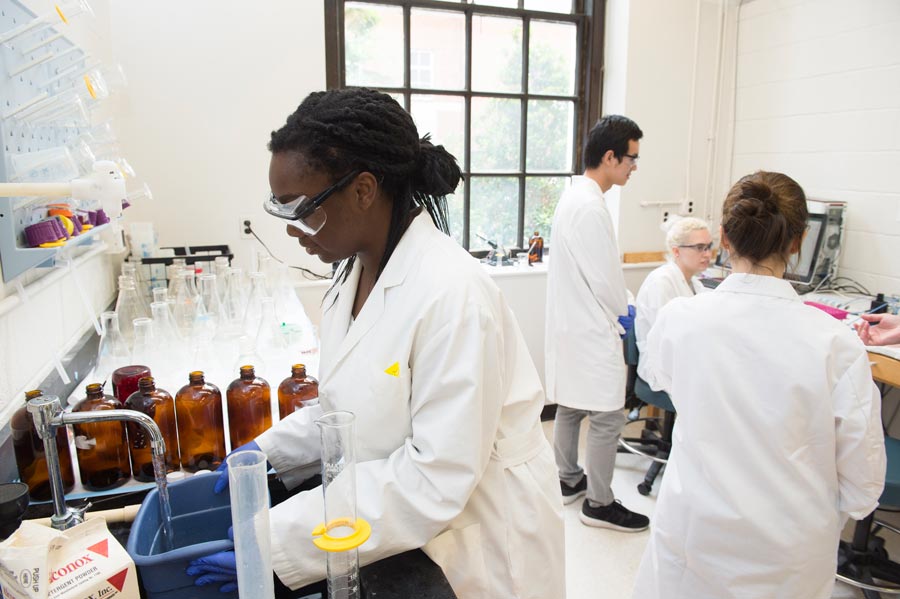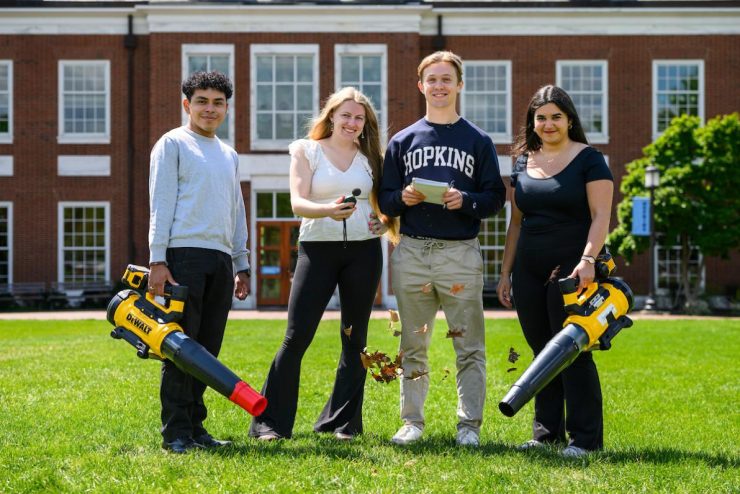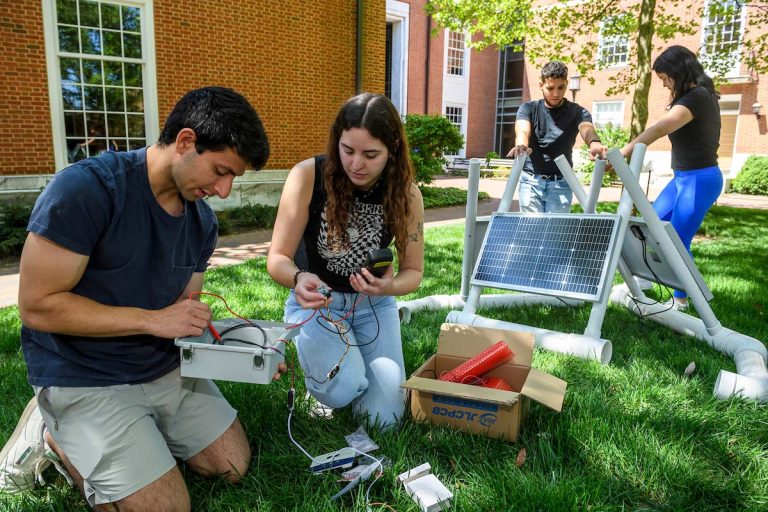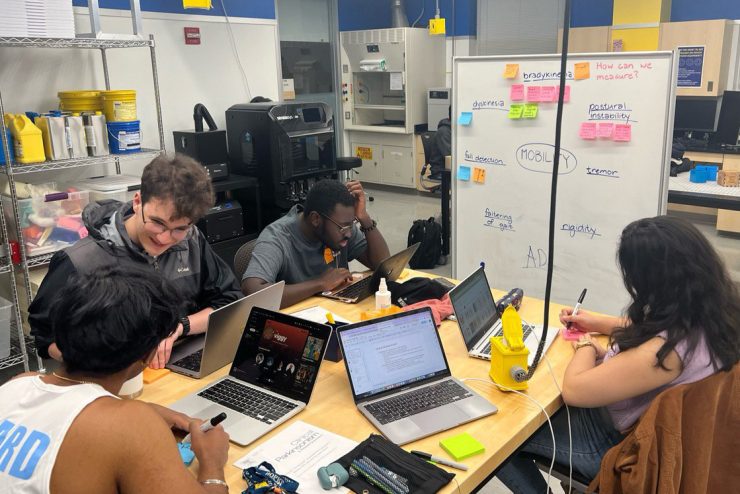Community and Industry Partnerships
Collaboration, professional preparation, and our commitment to making a global impact are fundamental to the student design experience at Johns Hopkins Engineering, and our industry and community partnerships address these goals in the way that benefit all parties involved.
Students in every engineering department, working closely with a diverse group of project partners, co-create solutions that meet their needs These can range from industry leaders sponsoring design project to address emerging markets and Johns Hopkins physicians seeking fresh perspectives on solving clinical problems to a local non-profit seeking a customized solution to assist an individual with disabilities.
Benefits for students
- Contribute to solutions that address pressing industry/societal needs
- Apply discipline specific core knowledge in multidisciplinary settings
- Learn project management from problem identification to solution implementation to address real industry challenges
- Develop critical thinking, adaptability, leadership, and problem-solving abilities
- Add industry-relevant projects to your portfolio and demonstrate your ability to work on client-driven projects
- Establish connections that can lead to internships or job opportunities
Benefits for community and industry partners
- Gain access to fresh, innovative ideas from diverse student teams
- Be provided cost-effective exploration of potential solutions to real-world problems
- Create a talent pipeline of motivated students who will soon be entering the job market
- Benefit from new ideas and tangible deliverables, and opportunities for IP
- Build relationships with Johns Hopkins engineering faculty and researchers

Learn about sponsoring a student design project
Stories
Recent industry- and community- sponsored student design projects

Industry sponsor: Staley Black & Decker
Students invent quieter leaf blower

Community sponsor: Chesapeake Bay Foundation
Creating Solar-powered sounds to attract Chesapeake Bay bivalves

University sponsor: Johns Hopkins School of Medicine
Improved motion data collection to inform medications
